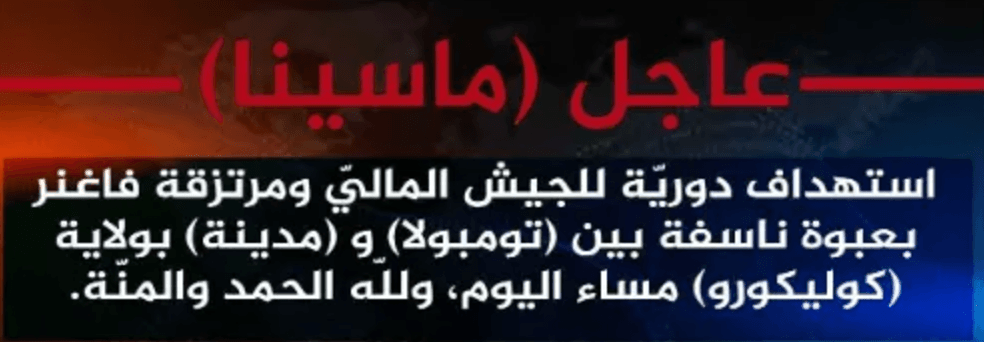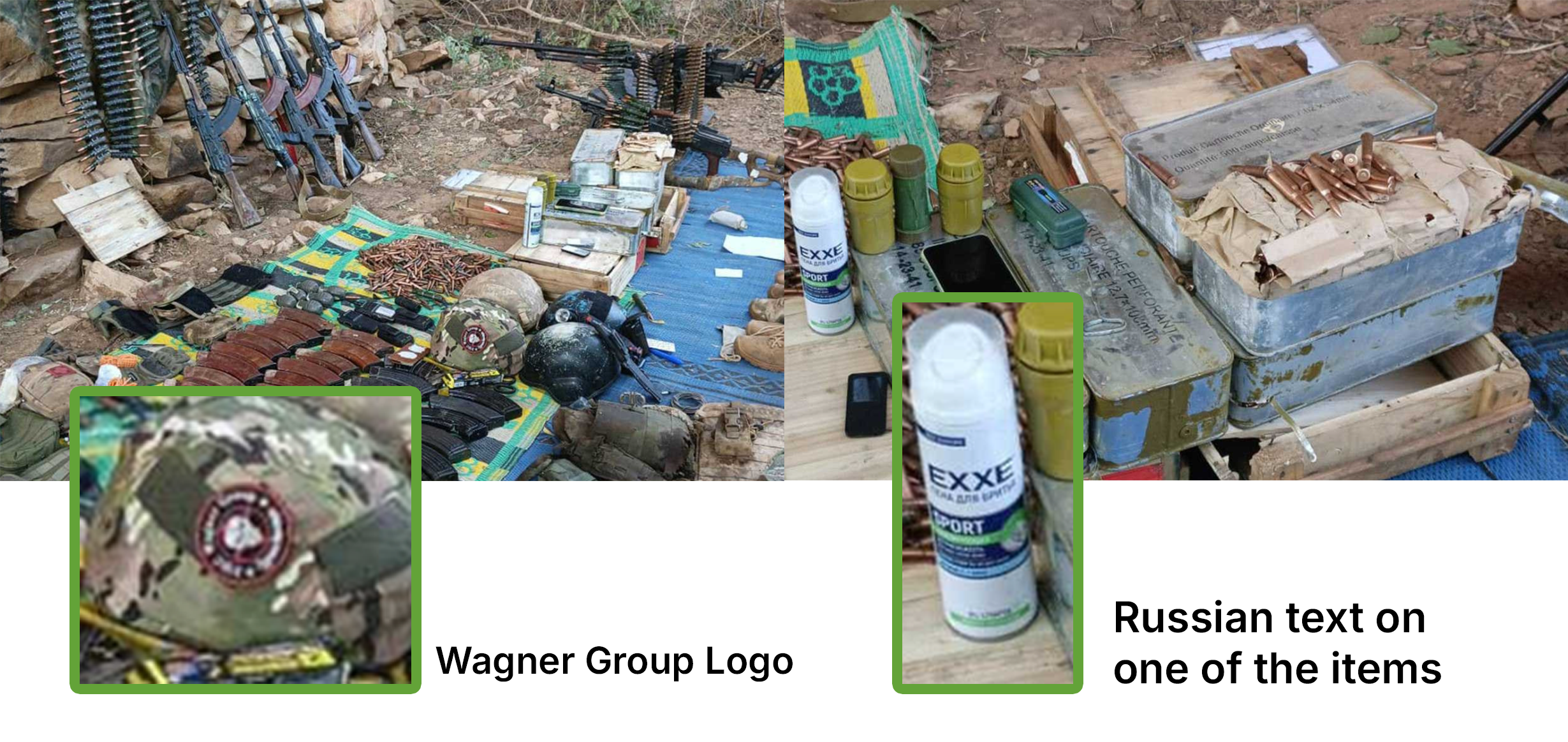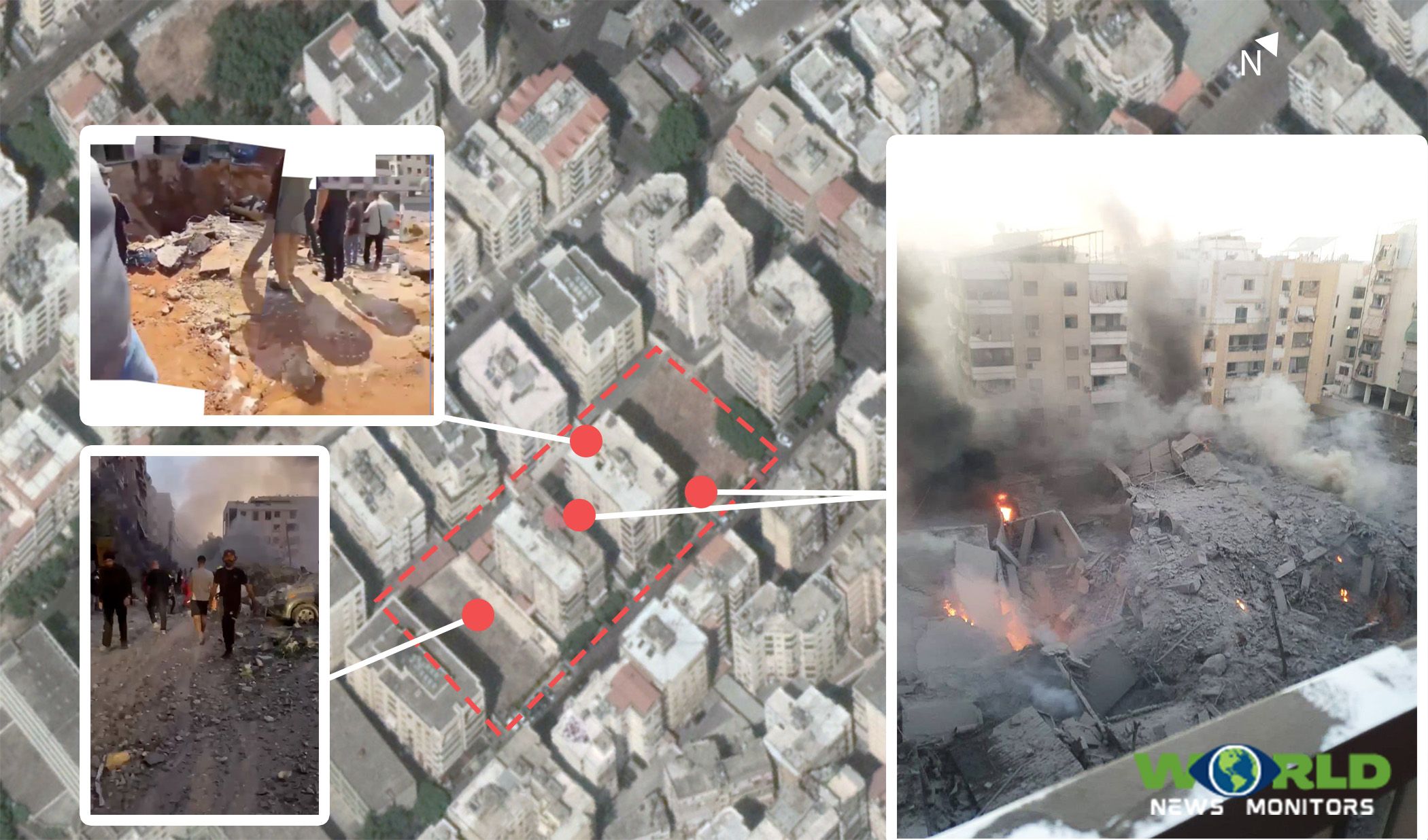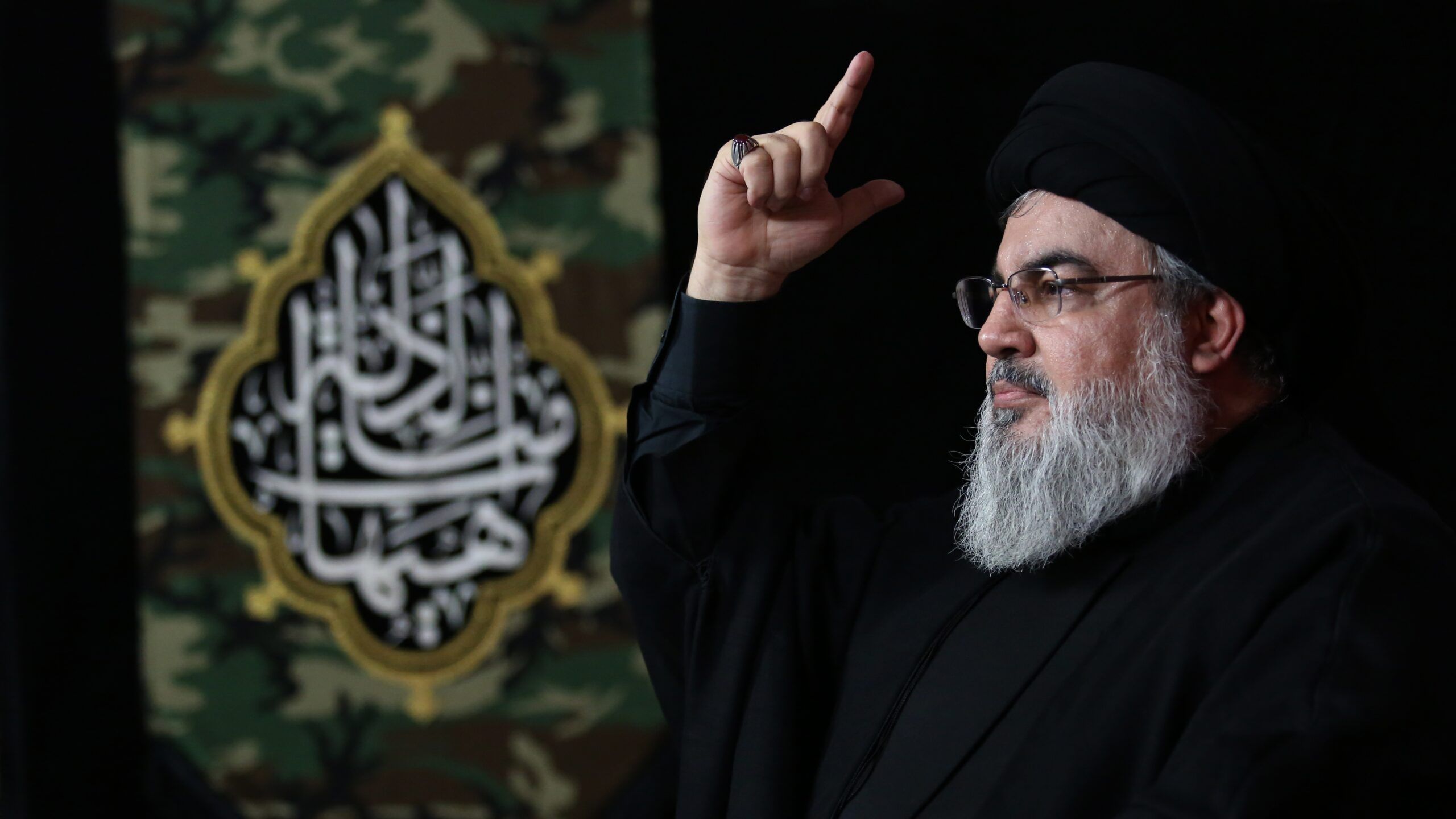Wagner Forces Face Off Against Az-Zallaqa Fighters

The Wagner Group, a private military company (PMC) that continues its operations in Africa despite the death of its leader Yevgeny Prigozhin, is reportedly engaged in clashes in Mali. Fighters from the group are said to be supporting government forces in their efforts against insurgent groups, including Tuareg militias and the Al-Qaeda-affiliated Jama’at Nusrat al-Islam wal-Muslimin (JNIM), also known as Az-Zallaqa.
Clashes with Extremist Groups
Reports indicate that Wagner forces have been involved in skirmishes near Bankas and Band Jagara, key areas in central Mali. Following one such confrontation, Az-Zallaqa claimed to have captured “trophies,” including items allegedly linked to Wagner personnel. Photos shared by the group depict a helmet featuring the Wagner logo and shaving foam labeled in Russian. However, the authenticity of these claims and materials remains unverified.

Extremist Communication Strategies
Az-Zallaqa is leveraging encrypted platforms, such as Chirpwire, alongside popular messaging services like WhatsApp and Telegram, to disseminate its propaganda and operational updates. The group has also developed a proprietary Android application to circumvent bans on mainstream social media platforms and search engines. This trend mirrors the broader adaptation strategies of extremist organizations seeking to maintain their online presence and expand influence despite restrictions.
Az-Zallaqa’s latest post provides updates on escalating clashes involving Wagner forces
Operational Updates and Regional Implications
Az-Zallaqa regularly provides updates on its own movements and those of Wagner forces, offering a window into the dynamic security landscape of the Sahel region. These updates highlight the complexities of the conflict, as well as the involvement of various state and non-state actors. Monitoring these communications provides insights into:
- The fluidity of territorial control in Mali.
- The interplay between local and foreign forces, including Wagner’s role in bolstering the Malian government.
- The broader geopolitical stakes, with international actors observing or participating in the region’s conflicts.
Context of Wagner’s Activities in Africa
Wagner’s presence in Africa has been a critical component of its global operations, particularly in countries like Mali, the Central African Republic, and Sudan. Their activities often align with host governments to counter insurgencies, but also raise concerns about human rights violations and exploitation of natural resources.
The ongoing developments in Mali underline the enduring volatility of the Sahel and the growing entanglement of foreign military contractors in local conflicts. As extremist groups innovate their communication tactics, countering their influence becomes increasingly challenging, underscoring the need for coordinated international efforts to stabilize the region.
More from the author



